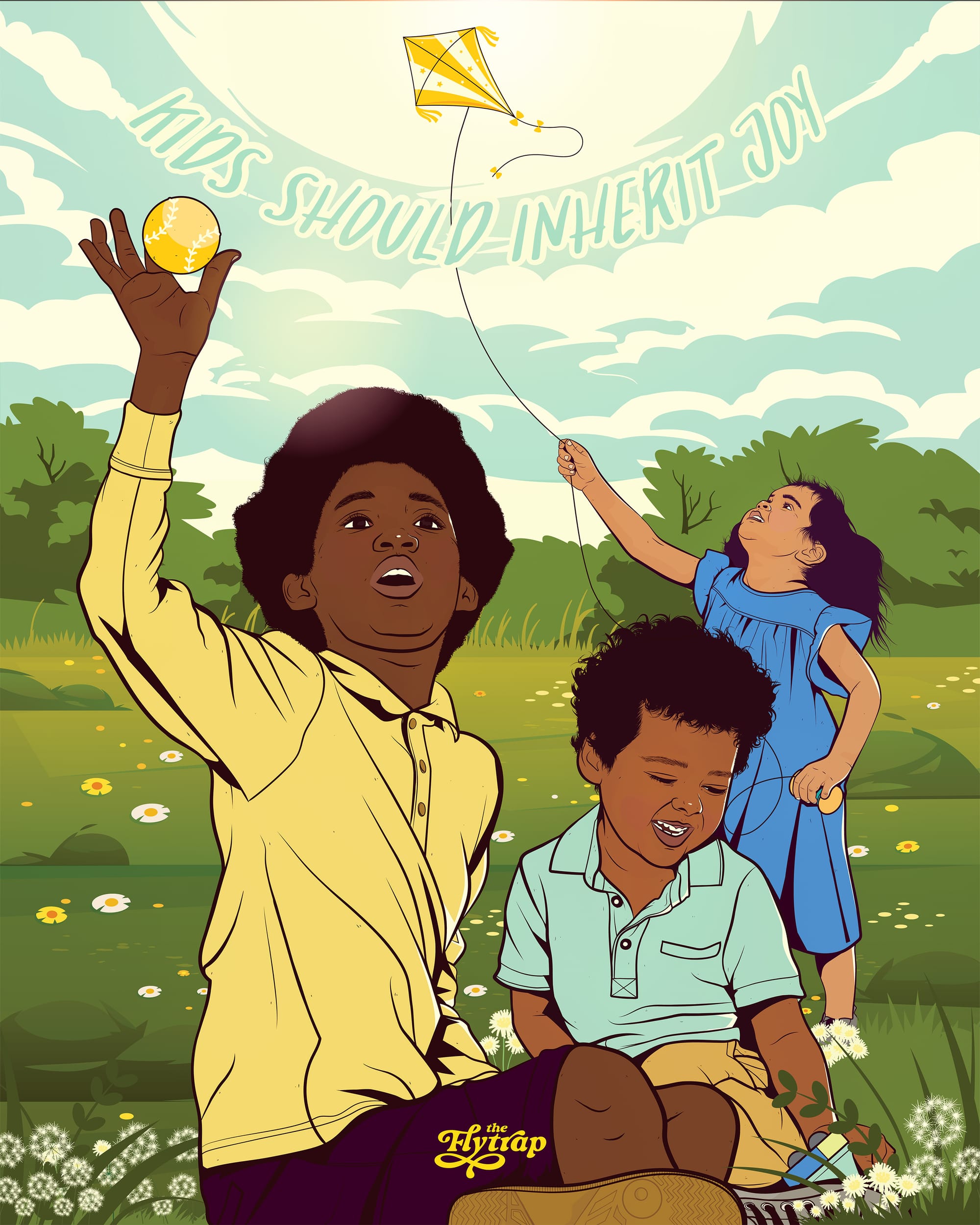No Perfect Neighbors in White Supremacy
A new film that subverts the gaze of the surveillance state asks how we can build a better world for all children.

When we moved into our subdivision, full of monochromatic homes only differentiated by the unit numbers on our front doors, we knew we were in for a treat. Though my husband and I are currently childless, we are both former educators who know children bring life into communities. During the summer months, when school is out and the nights are endless, our neighborhood’s kids fuel our sense of community. They float, swim, and splash in the community pool; ride their scooters up and down the sidewalks; play impromptu soccer matches in a large, grassed area; and laugh until their hearts’ content.
Children, especially the predominantly Black and brown children in our subdivision, are the best of us, and our neighborhood takes their safety seriously. One of our neighbors installed signs throughout the community that remind drivers to slow down and watch out for children on scooters and bikes. Another neighbor installed a basketball hoop in a discreet area so the kids can play without worrying about cars. We all keep a close eye on the kids, reminding them to look both ways before crossing the street and ensuring they’re in their respective homes before the sun sets. Though these are not our children, their safety is our collective responsibility, and our community has embraced that shared commitment.
It’s an impulse I inherited. I was once a Black girl in a community full of latchkey kids who played outside until the streetlights popped on. There were so many trusted adults in our neighborhood that I can’t ever remember worrying about my safety. We would ride Barbie Jeeps up and down the alley, perform choreography from our favorite music videos, and drink unlimited Capri Suns without a care in the world. I inherently knew I was safe. I knew the adults in my orbit cared about me and went to great lengths to protect me. I knew no harm would come to me, especially from the neighbors who had also bought into the covenant of treating us kids with love, care, and respect.
All these memories, past and present, flashed through my mind as I watched The Perfect Neighbor, a Sundance-winning documentary now streaming on Netflix. The film primarily uses police bodycam footage to chronicle the unconscionable harassment campaign Susan Lorincz, a white woman, waged against the children in the tightknit Florida community where she lived. For nearly two years, Lorincz repeatedly taunts the predominantly Black children in her neighborhood. She hurls racist slurs at them, accuses them of damaging her property, and calls the local sheriff’s office when their parents push back on her cruelty. For Lorincz, their offense is being loud, boisterous, and excited children who play touch football on the lawn beside her home, a lawn she does not own.
